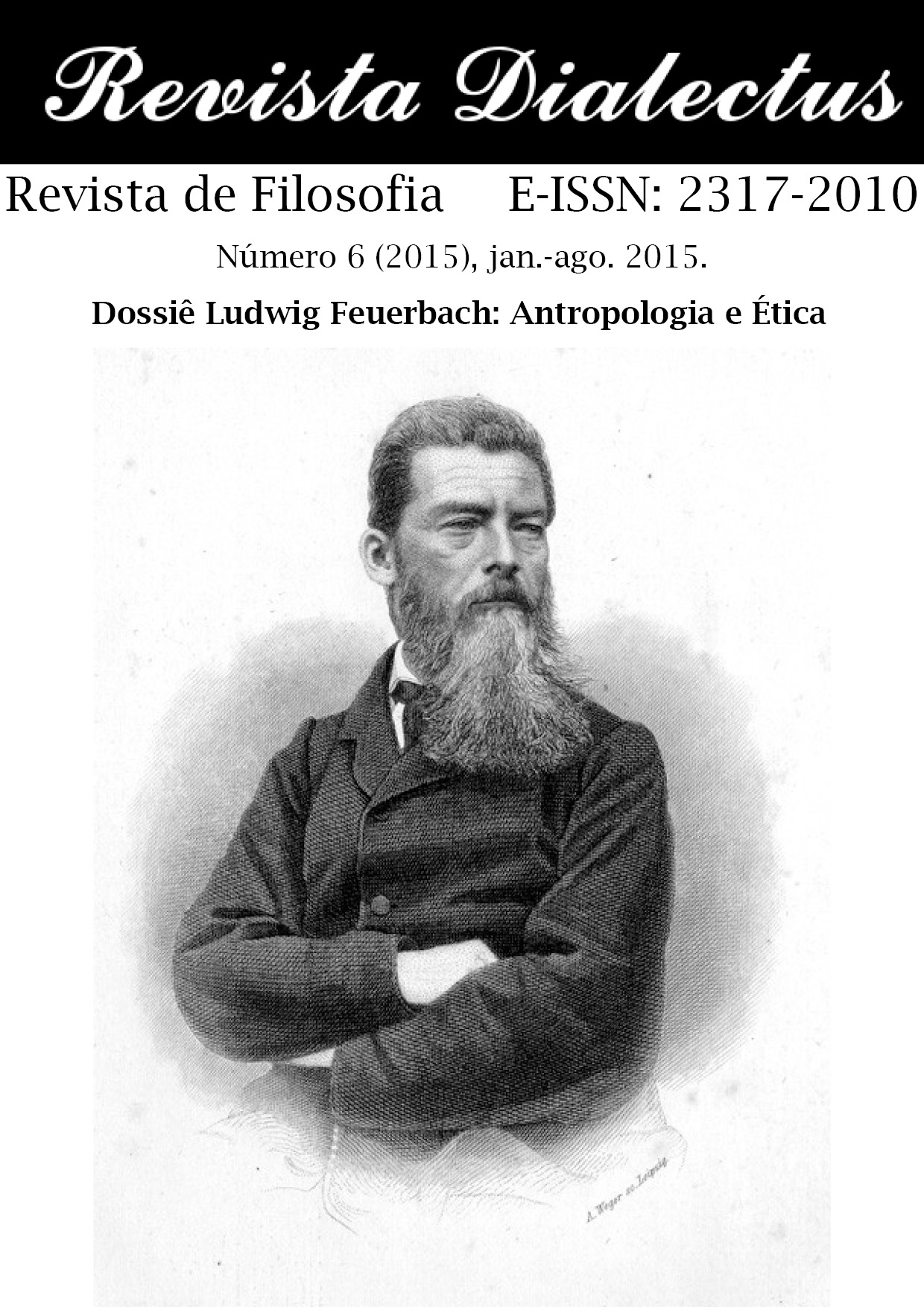PHILOSOPHIE DER ZUKUNFT ODER EINE ZUKUNFT OHNE PHILOSOPHIE? LUDWIG FEUERBACHS PRAKTISCHE PHILOSOPHIE IM SPIEGEL DES REVOLUTIONÄREN VORMÄRZ
DOI:
https://doi.org/10.30611/2015n6id5209Resumo
The period between 1830 (July Revolution in France) and 1848 (March Revolution in Germany) is not only a period of political upheavals, not only the beginning of the so called Industrial Revolution in Germany, but also an extraordinary philosophical era characterized by Hegel’s scholars. The so called Vormärzphilosophie (pre-March philosophy) was dominated by two different schools of Hegelianism. There was one faction which saw in the continuation of Hegel’s speculative system philosophy the intellectual fundament of a modern constitutional state. On the other side stood those “philosophers of the future” like the brothers Ludwig and Friedrich Feuerbach or Karl Marx who worked on a complete break with Hegel’s system of science because of its theological roots. Going back to the idea of an absolute spirit meant from this perspective going back to a non-enlightened school of thinking. The philosophy of future was a philosophy with a strong practical accent as Marx had put into words in his 11th thesis on Feuerbach. First step of this practical program was the secularization, which was first of all an educational program, since the church (theological faculties) educated the teachers, wrote the school books and prevented any enlightenment of the people. In the consequence people were not only treated as bad sinners, but also as eternal subject with no right of political participation. So the break with Hegel and the Hegelian theory of a Christian state opened the door to a united and democratic Germany. The way to democracy and unity was long. It took – seen from 1848 – 100 years to give Germany a lasting constitution and 140 years to unite.Downloads
Publicado
2016-10-06
Edição
Seção
Dossiê Ludwig Feuerbach: Antropologia e Ética
Licença
Autores que publicam nesta revista concordam com os seguintes termos:
- Autores mantém os direitos autorais e concedem à revista o direito de primeira publicação, com o trabalho simultaneamente licenciado sob a Atribuição-NãoComercial-SemDerivações 4.0 Internacional (CC BY-NC-ND 4.0), que permite o compartilhamento não comercial, sem modificações e com igual licença do trabalho, com o devido reconhecimento da autoria e publicação inicial nesta revista.
- Autores têm autorização para assumir contratos adicionais separadamente, para distribuição não-exclusiva da versão do trabalho publicada nesta revista (ex.: publicar em repositório institucional ou como capítulo de livro), com reconhecimento de autoria e publicação inicial nesta revista.
- Autores têm permissão e são estimulados a publicar e distribuir seu trabalho online (ex.: em repositórios institucionais ou na sua página pessoal) a qualquer ponto antes ou durante o processo editorial, já que isso pode gerar alterações produtivas, bem como aumentar o impacto e a citação do trabalho publicado (Veja O Efeito do Acesso Livre).



















